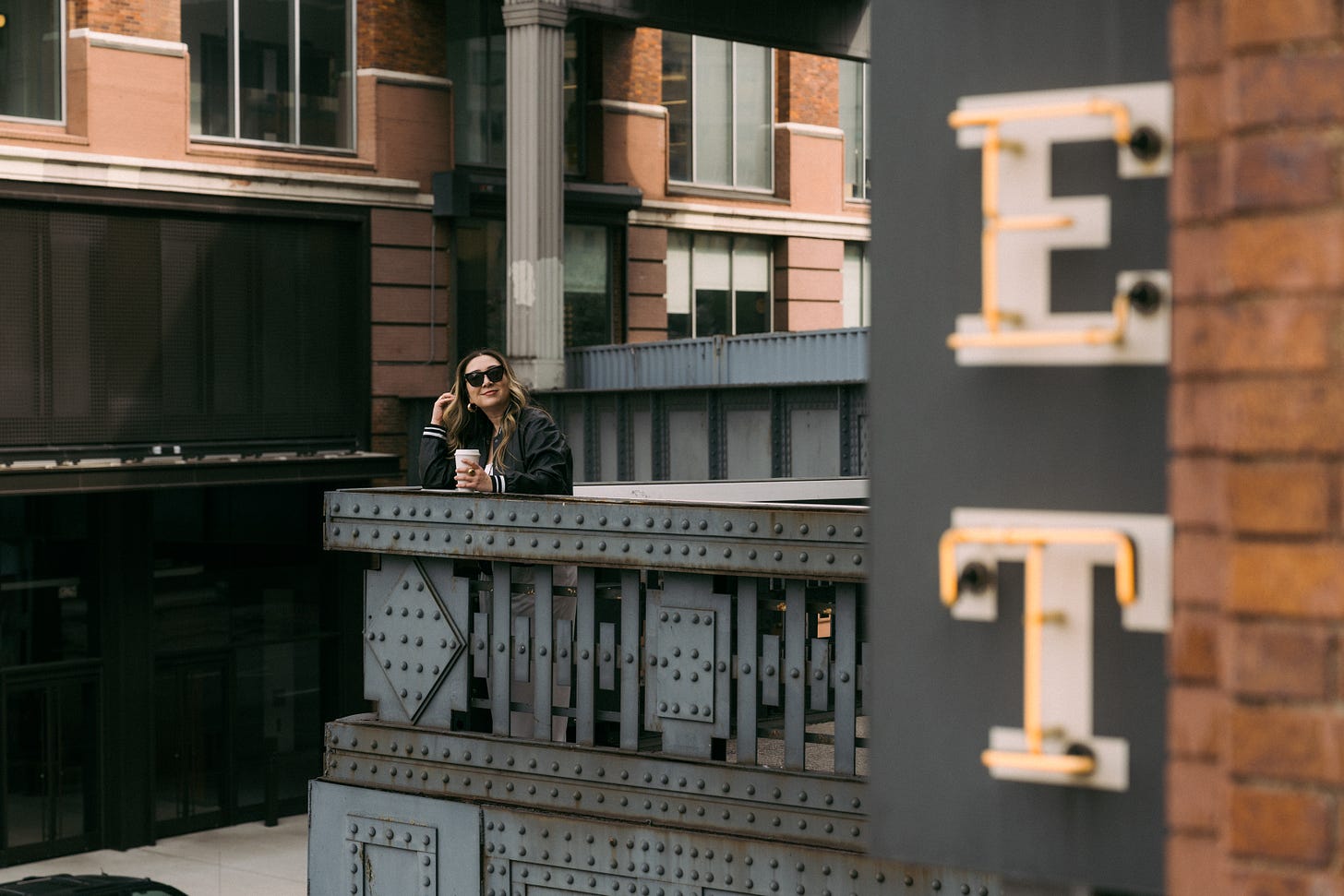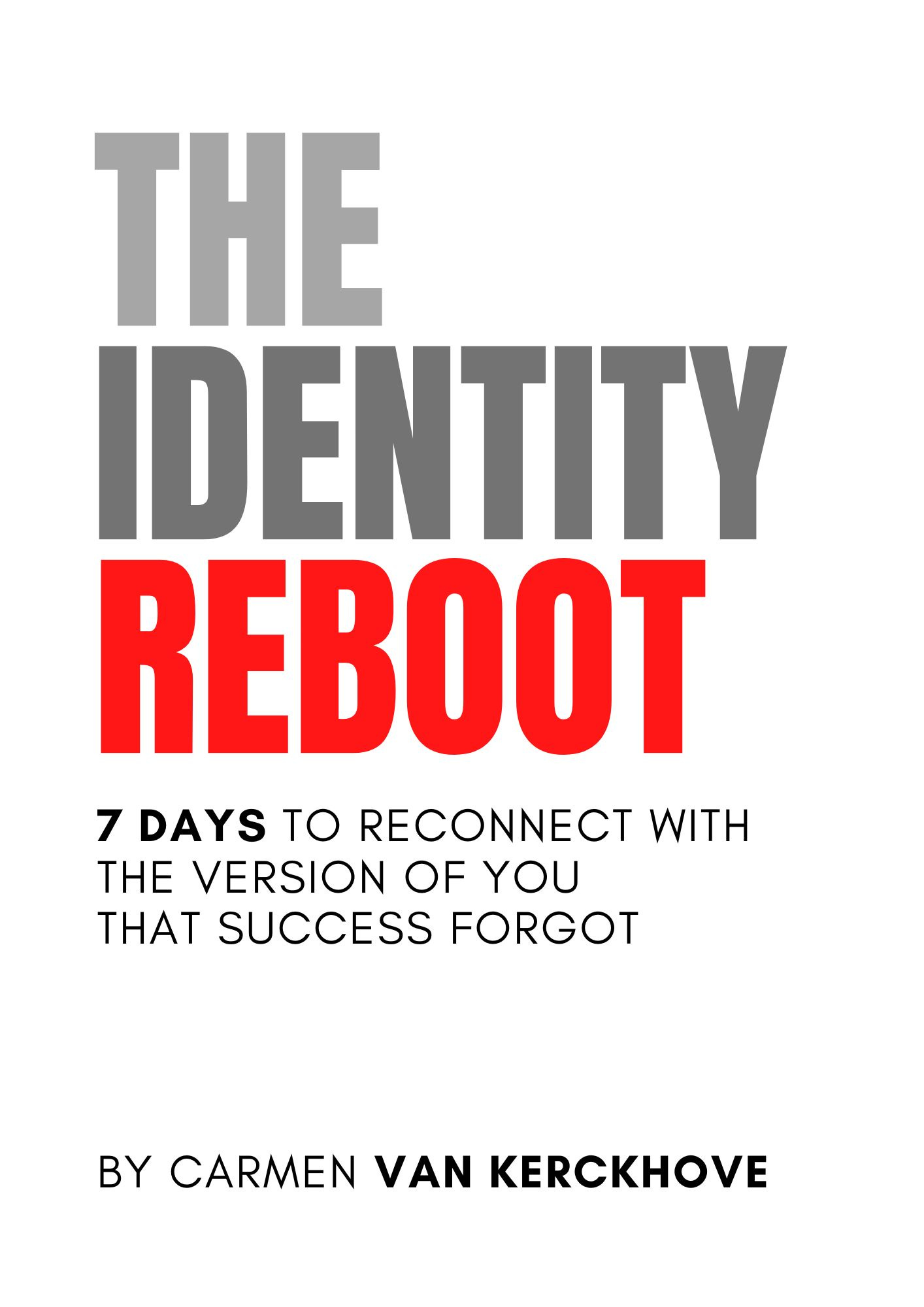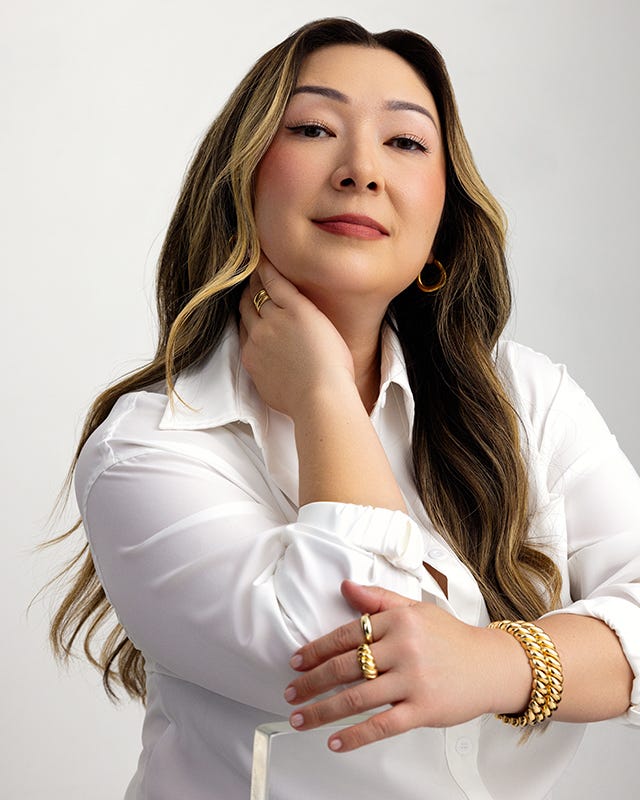How nearly getting fired set me up for success
Why sometimes stepping "down" is the smartest career move you can make
I did everything "right." Columbia degree, Goldman Sachs analyst position straight out of college, followed by promising marketing and advertising roles that kept me on the perfect corporate track. Then I found myself staring at another month's terrible sales numbers at a publishing company, knowing I was about to get fired. My solution? I took what looked like a massive step down: becoming an office manager to the very sales team I was failing to be part of.
Everyone thought I was throwing away my potential. An Ivy League graduate choosing to make copies and process paperwork? But here's what no one tells you about success: sometimes the best way up is to take an unconventional step back. That decision I made in a moment of crisis? It created space for something much bigger than I could have imagined: regular TV appearances on CNN and MSNBC, speaking engagements at colleges across the country, and five-figure consulting fees—none of which would have happened if I'd stayed on the "safe" path.
Let me take you back to that moment at Reed Elsevier, when I'd hear our sales director's footsteps approaching my desk and my heart would start racing. I was absolutely terrible at advertising sales. Not just having-a-rough-patch terrible, but fundamentally, irredeemably terrible. Every month, my numbers looked like a case study in what not to do. Each time the sales director walked by asking "Hey, how are those numbers looking, Carmen?" I'd put on my best confident smile and say something like "Yeah, I'm about to close this one, I have a good feeling about this week!" But we both knew there was no way I was going to meet quota again.
I had always been that person who mastered anything: straight-A student, perfect test scores, achievements coming easily (just don't ask about my performance in gym class). Having something just not click, even after trying my hardest, was completely foreign to me. This wasn't just a career crisis; it was shattering my entire self-image. And with the job market being what it was, I wasn't sure I could land another position quickly enough.
Then something unexpected happened. The office manager in our department left, creating an opening. The position offered the same base salary I was making (which, let's be honest, was all I was making anyway since those sales commissions weren't exactly rolling in). But the catch was that I would be supporting the very sales team I was currently part of.
Talk about a pride-swallowing moment. The voice in my head kept asking, "Really? From Goldman Sachs analyst to… office manager?" I could already imagine the raised eyebrows, the whispered conversations, the LinkedIn updates I definitely wouldn't be posting. But survival instinct is a powerful thing. I told myself it was just temporary while I figured out my next move. I floated the idea to my managers, suggesting that my experience on the sales side would help me understand and support the team's needs. To my relief, they agreed.
Then something surprising happened: I actually started enjoying it. For the first time in years, my brain had space to think. The work was straightforward, the hours were predictable, and I could leave exactly at 5 PM without anyone batting an eye. No quotas hanging over my head, no sales managers appearing at my desk with that "let's talk about your numbers" look.
That mental space turned out to be invaluable. I had started a blog called Racialicious, exploring the intersection of race and pop culture. This was in the early days of blogging, when the media's approach to discussing race was still stuck in a black-and-white, Civil Rights era framework. We brought something different: a younger, more nuanced perspective that could tackle heavy topics while staying relatable. We could approach race with humor and authenticity, explore complex issues through lived experience, and create content that resonated with a new generation.
Instead of trying to climb back up the corporate ladder, I decided to stay in the admin world because it was working for me. I moved to Hearst as an executive assistant to the publisher of Town & Country, which came with a nice salary bump and an unexpected education in brand transformation. From my front-row seat, I watched and learned as they tackled one of the biggest challenges in publishing: how to reposition a legacy brand. The magazine was evolving from a stuffy "ladies who lunch" publication into a luxury bible for youthful Boomers, and I absorbed every lesson about messaging, audience targeting, and brand evolution along the way.
But the real game-changer came when I landed at D.E. Shaw, a hedge fund, where my salary tripled. Here's the wild part: D.E. Shaw actually had a program called "other agenda candidates," specifically seeking out Ivy League grads for admin roles who had creative pursuits on the side. Suddenly, I was working alongside poets and filmmakers, making six figures with reasonable hours, and my bosses were actively supportive of my side projects.
Picture this: I would clock in at the hedge fund, then on my lunch break, hop over to the CNN studios to make a TV appearance discussing something I'd written on Racialicious, and return to find my bosses had watched it live and were cheering me on. It was surreal. This "step down" had somehow given me more freedom, better pay, and the ability to pursue work I truly cared about.
The blog grew into something I never could have predicted. I became a regular commentator on NPR, CNN, and MSNBC. The New York Times and The Washington Post regularly quoted me. I was speaking at college campuses nationwide, commanding five-figure speaking fees from corporations and large nonprofits. That sideways move into an admin role, the one I thought might end my career? It created the space for me to build something entirely new, something that brought its own kind of prestige in a completely different field.

Here's what I've learned about success: we're conditioned to think of it as a straight line up, like climbing a staircase. But real success, the kind that aligns with who you are and what you want to create in the world, often requires strategic retreats. Those moments when you consciously choose to take a step back, even when that step looks like a step down to others, can become launching pads for something greater.
Looking back now at that terrified version of myself, sitting at that desk trying to hide from the sales director, I want to tell her something: that moment you think is going to destroy your career is actually about to launch it in an entirely new direction. That sideways move that everyone questioned? It's going to create space for something bigger than you can imagine.
The real power of taking a step back isn't in the step itself. It's in the space it creates: space to breathe, space to think, space to build something meaningful. When you're not constantly trying to prove yourself or maintain an image of success, you finally have the mental bandwidth to determine what success actually means to you.
So the next time you find yourself contemplating a move that others might see as a step down, remember this: the boldest career moves often look like retreats to everyone else. But creating space in your life, whether through a lateral move or a strategic pause, might be exactly what you need to launch toward something greater.
Question for you:
When was the last time you made a career decision that others questioned, but you knew in your gut was right? What happened? Share your experience in the comments 👇
A special thank you gift from me to you:
There’s no paywall on any of my writing. Paid subscribers aren’t paying for access—they’re investing in work that resonates.
As a thank-you, you’ll receive a special gift:
The Identity Reboot:
7 Days to Reconnect with the Version of You That Success Forgot
If your sense of self has gotten tangled up in roles, titles, accomplishments—or the pressure to stay impressive—this guide is for you.
This is your reset.
It’s a 7-day PDF experience designed to strip away everything you’ve outgrown, so you can reconnect with what’s real, true, and still yours.
Inside, you’ll:
Uncover who you are beyond the resume, the job title, or the public performance
Identify which parts of your identity feel authentic—and which feel like armor
Rebuild a vision of yourself that isn’t based on productivity, approval, or prestige
This isn’t about starting from scratch. It’s about remembering who you were before the world told you who to be.
If you’ve ever seen yourself in my writing, this is your next step:
And if now’s not the right time?
I’m still glad you’re here.
Bring Carmen to your next event
Carmen Van Kerckhove is an author and keynote speaker whose work explores how technology, social class, and cultural shifts are reshaping work as we know it. Her upcoming book, The Slingshot Effect (Crown Currency), shows why pulling back isn’t a setback—it’s how every breakthrough begins.
Based in New York City, Carmen speaks at keynotes, conferences, leadership summits, and company retreats.
→ For speaking inquiries, contact info@topflightfamilymedia.com. Explore her signature talks here.







This is SO GOOD and such great timing while people are looking for jobs and hustle culture is still at a high. I did the same many times over - once it meant leaving nonprofit work to become a barista, where the EOC of The Seattle Times found my blog and made me a contributor to the paper! Miracles are everywhere. Thanks for this post!
I took a full-time front-of-house position at a busy restaurant in my late twenties...which pretty much everyone said was a bad/crazy idea for someone who had always had office jobs. And I don't blame them—it looked random and irrational. But I have zero regrets! I was going through a really hard time in my life and needed a break from the high pressure and chronic stress of desk jobs and office politics. The work was still, of course, hard and grueling, and I had never been so tired and unhealthy in my life. But it was also filled with laughs and fun, and I appreciated the fact that I could let my guard down and be myself. I also got to explore my interest in a career in food & beverage (and eventually decide for once and for all it was not for me). But the best things that came out of the experience were the memories and the lifelong friendships!